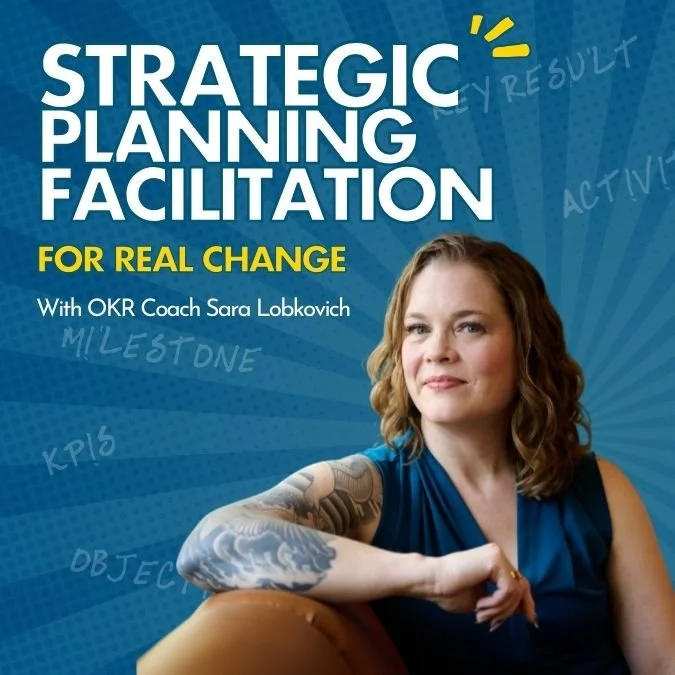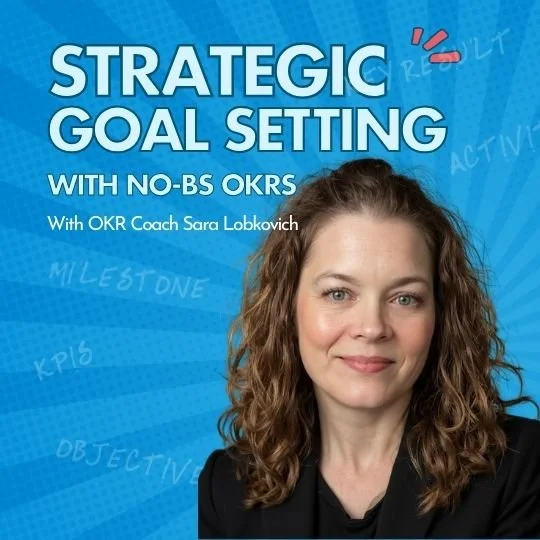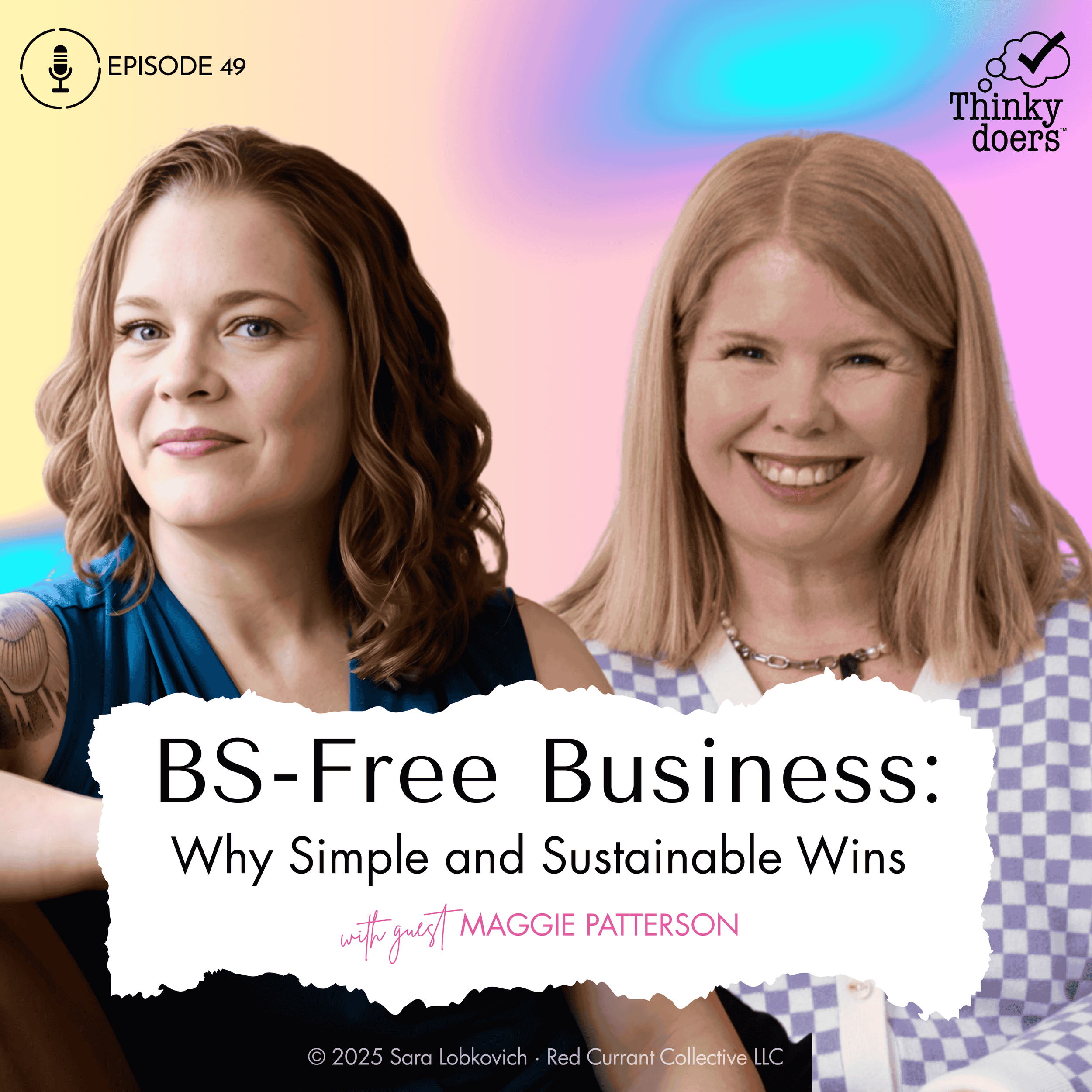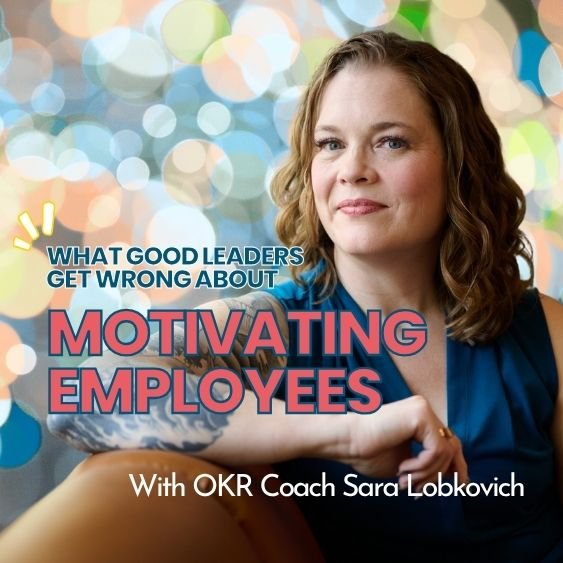
Welcome to the No-BS OKRs™ Blog
Here, you’ll find resources we create to help teams create, implement, and operationalize No-BS OKRs™ (called Evolutionary OKRs® in some workplaces) to set clear goals, stay focused, and build cultures of growth, learning, and high performance.
Featured No-BS OKRs Posts
Newest Thinkydoer Podcast Episodes
Posts by Category
Principles of No-BS OKRs
Leadership + Management
All posts about Leadership & Management →
Strategic Planning
All posts about Strategic Planning & Goals →
OKR FAQs
All No-BS OKRs FAQs →
OKR Coaching
All posts about OKR Coaching →


Strategic Goal Setting: Break the Busy Habit, Boost Results
You know that exhausting feeling when everyone's incredibly busy, working harder than ever, but somehow you're not making meaningful progress on what actually matters? Learn what separates “being busy” from actually doing strategic goal setting in this guide from OKR Coach Sara Lobkovich.

OKR vs KPI: Understanding the Key Differences
Curious about the difference between OKRs and KPIs? This post explains how each measurement approach works, when to use them, and why keeping your metrics clear can lead to better business results. Learn how OKRs and KPIs can work together to help you focus on both tracking performance and driving real improvement.

A No-BS Approach to Aligning Team OKRs
The #1 question organizations ask about OKRs? "How do we cascade them to every team and person?" After training 2,000+ OKR coaches across 300+ organizations, my answer is controversial: You don't. Traditional OKR cascading creates a "mathematical nightmare"—turning 4 company objectives into 100+ unmanageable goals. There's a better way: flexible localization that helps teams align through a simple 3-question framework without drowning in complexity. Learn why cascading fails, when teams need different goal tools, and how to implement team OKR alignment that actually works.














The #1 question organizations ask about OKRs? "How do we cascade them to every team and person?" After training 2,000+ OKR coaches across 300+ organizations, my answer is controversial: You don't. Traditional OKR cascading creates a "mathematical nightmare"—turning 4 company objectives into 100+ unmanageable goals. There's a better way: flexible localization that helps teams align through a simple 3-question framework without drowning in complexity. Learn why cascading fails, when teams need different goal tools, and how to implement team OKR alignment that actually works.